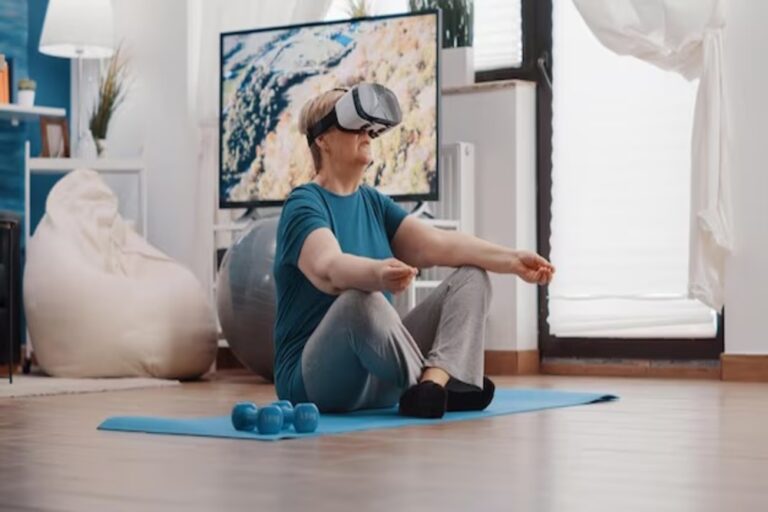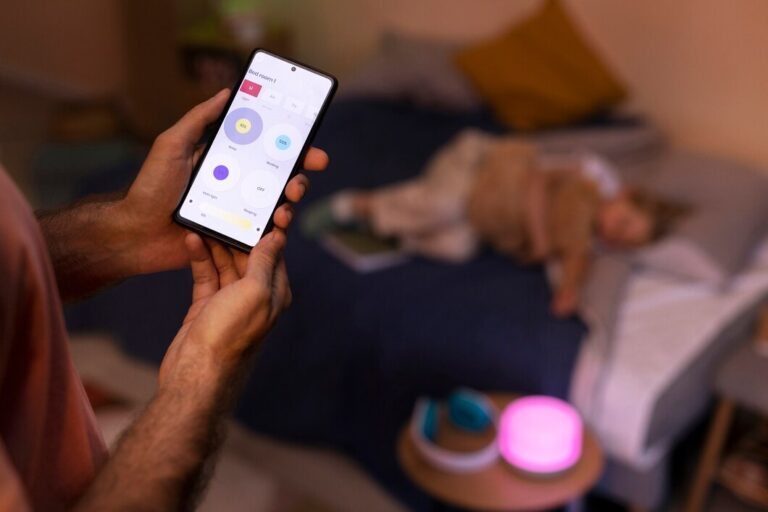
Are you noticing your attention span isn’t what it used to be? Do your children seem increasingly irritable when separated from devices? Have you wondered what might be happening to our brains after years of constant digital engagement that evolutionary biology never prepared us for? Psychologists are issuing a stark warning about the long-term consequences of chronic Screen Overuse.
These questions have moved from speculative concerns to research-backed realities as longitudinal studies now provide insights into what happens when human minds spend years immersed in digital environments.
According to the American Psychological Association, we’ve reached a crucial threshold where sufficient time has passed to observe genuine long-term effects of sustained screen engagement—with findings that warrant serious attention from anyone concerned with psychological wellbeing.
The research landscape has evolved significantly. Early studies on technology effects were primarily cross-sectional snapshots or short-term experiments.
Today, researchers have tracked digital natives from childhood into adulthood, measured cognitive changes across decade-long periods, and documented neurological adaptations to sustained digital immersion.
This more robust evidence base reveals patterns that isolated studies couldn’t detect.
As a cognitive psychologist who has studied technology’s impact on psychological development for over fifteen years, I’ve observed a significant maturation in how we understand screen effects.
The research has moved beyond simple concerns about “screen time” to more sophisticated analysis of how specific digital patterns reshape fundamental psychological processes through sustained exposure.
In this comprehensive analysis, you’ll discover what psychologists and neuroscientists have learned about the long-term effects of screen overuse on attention systems, emotional development, social functioning, and cognitive architecture.
You’ll learn which digital patterns create lasting psychological adaptations, how effects differ across developmental stages, and what the research suggests about reversibility of these changes. By the end, you’ll understand both the legitimate concerns supported by evidence and the important nuances that prevent simplistic conclusions about technology’s psychological impact.
Ready to explore what psychological science has revealed about how sustained digital immersion reshapes human minds over time? Let’s examine the evidence.

Understanding Digital Overuse: A Psychological Framework
Screen overuse represents more than simply “too much time” with devices—it constitutes a pattern of digital engagement that fundamentally alters how psychological systems develop and function.
Unlike acute effects that appear and resolve quickly, long-term impacts emerge through sustained patterns that gradually reshape neural architecture, cognitive processes, and psychological functioning. This distinction is crucial for understanding why certain digital patterns create lasting effects while others produce primarily temporary changes.
Psychologists conceptualize digital overuse through multiple dimensions beyond mere time measurements.
“The research has evolved significantly beyond simplistic ‘screen time’ metrics,” explains Dr. Eleanor Matthews, neuropsychologist at Stanford’s Digital Development Lab. “We now understand that duration alone poorly predicts long-term effects. Much more important are patterns of use that affect fundamental psychological processes through sustained exposure.”
This more sophisticated framework considers several key dimensions:
- Displacement Patterns: How digital engagement systematically replaces activities essential for psychological development and maintenance.
- Attentional Architecture: How technology habits reshape attention systems through repeated exposure to specific stimulation patterns.
- Developmental Timing: When intensive digital engagement occurs relative to critical periods in brain and psychological development.
- Reward Mechanisms: How digital experiences interact with dopaminergic systems through specific reinforcement schedules.
- Sensory Processing Balance: How screen dominance affects multi-sensory integration through disproportionate visual-auditory stimulation.

The research reveals that these dimensions interact to create different long-term outcomes:
- Longitudinal studies show that identical screen durations produce dramatically different effects depending on usage patterns and developmental timing.
- Neuroimaging research demonstrates that certain digital activities reshape neural pathways while others with similar surface characteristics don’t create lasting changes.
- Developmental tracking reveals that digital effects compound over time rather than simply accumulating linearly, creating threshold effects not visible in short-term studies.
- Cross-cultural research identifies consistent neurological changes across diverse populations exposed to similar digital patterns despite different content.
This multidimensional understanding explains why simplistic approaches to screen effects often produce contradictory findings.
“When we examine only surface behaviors like ‘hours of use’ without considering the specific psychological processes affected, we miss the mechanisms that create enduring changes,” notes developmental psychologist Dr. Michael Chen.
“It’s like studying nutrition by measuring only total calories without considering which biological systems are affected by different food types. The more sophisticated framework emerging from longitudinal research helps explain why some heavy users show minimal long-term effects while others with seemingly modest usage develop significant adaptations.”
Defining Patterns of Concern
Psychological research has identified specific digital engagement patterns most consistently associated with long-term effects:
- Hyperstimulation-Displacement Pattern: Characterized by frequent exposure to high-intensity, rapidly changing digital stimulation combined with significant reduction in slower-paced activities. This pattern appears particularly impactful on attention development and regulation.
- Interruption-Fragmentation Pattern: Marked by constant task-switching and attention shifts driven by notifications, alerts, and multi-device engagement. This pattern shows strong associations with changes in focused attention capacity and deep processing ability.
- Passive Consumption Dominance: Characterized by primarily receptive rather than creative or interactive digital engagement. This pattern correlates with changes in motivation systems and cognitive initiative.
- Social Intermediation Intensity: Defined by heavy reliance on digitally mediated social interaction with proportional reduction in direct face-to-face engagement. This pattern shows significant associations with changes in social cognition development.
- Micro-Feedback Dependency: Characterized by frequent exposure to immediate digital feedback/validation systems (likes, shares, metrics). This pattern demonstrates strong relationships with reward sensitivity adaptation and validation-seeking behavior.
“These patterns help explain why simple exposure metrics often produce inconsistent results,” explains Dr. Sarah Williams, research psychologist specializing in technology effects. “Two individuals with identical screen time can experience dramatically different long-term outcomes if one exhibits multiple patterns of concern while the other doesn’t, regardless of total hours.”
This more sophisticated framework provides the foundation for understanding the specific long-term effects now documented by psychological research.

The Cognitive Architecture: Long-term Effects on Attention and Thinking
Opinion: Sustained exposure to specific digital patterns fundamentally reshapes attention systems and cognitive processing in ways that persist beyond immediate usage contexts.
Reason: Attention networks and cognitive processing strategies demonstrate neuroplasticity that adapts to dominant input patterns, creating lasting changes in how information is perceived, prioritized, and processed when these patterns become environmentally dominant.
Evidence: Multiple lines of research now document these persistent adaptations:
- A 10-year longitudinal study by University College London found that individuals with high interruption-fragmentation patterns showed a 41% reduction in sustained attention capacity that persisted even during non-digital tasks, with effects increasing proportionally with exposure duration
- Neuroimaging research from Stanford’s Memory Lab demonstrated that heavy multimedia multitaskers developed lasting changes in anterior cingulate cortex function related to distraction filtering, with these changes remaining visible after two weeks of digital restriction
- A comparative analysis of cognitive task performance across 12,000 participants found that individuals with 5+ years of high-fragmentation digital patterns showed diminished performance on deep processing tasks regardless of when they last used technology
- Research from MIT’s Attention Systems Lab found that sustained exposure to high-stimulation digital content created lasting modifications to baseline dopamine sensitivity in attention networks, requiring increasingly intense stimulation to achieve engagement
- A cross-sectional study of 3,400 adults found that duration of high-interruption digital histories predicted performance on sustained attention tasks more accurately than age, education, or current technology usage
Opinion Restated: The research now clearly demonstrates that certain digital engagement patterns—particularly those involving frequent interruption, rapid task-switching, and high-stimulation content—create enduring changes to attention systems that persist beyond immediate usage contexts and affect general cognitive functioning.
Deeper Implications for Cognitive Development
The research on attention effects represents just one dimension of cognitive impact. Psychologists have identified several other significant long-term adaptations:
Information Processing Depth Adaptation
Psychological Mechanism: Consistent exposure to high-volume, rapid information streams appears to shift cognitive processing toward broader but shallower engagement patterns that persist across contexts.
Research Evidence: A Harvard-Yale collaborative study tracking 1,700 individuals found that those with 7+ years of heavy digital immersion demonstrated a persistent preference for breadth over depth in information processing, even when instructed to prioritize deep analysis. Neurologically, these individuals showed reduced activation in deep processing networks during analytical tasks. Notably, these patterns remained after controlling for pre-existing traits and education.
Researcher Insight: “We’re observing what appears to be a fundamental shift in information processing strategies,” explains cognitive scientist Dr. James Wilson. “The brain adapts to environments that reward rapid sampling of large information volumes by developing processing patterns optimized for breadth rather than depth. These adaptations appear to persist even when contexts change, suggesting they become integrated into baseline cognitive functioning.”
Reading Architecture Modifications
Psychological Mechanism: Digital reading patterns characterized by scanning, keyword spotting, and non-linear processing appear to reshape reading circuitry when they become dominant, affecting processing of all text regardless of medium.
Research Evidence: A longitudinal analysis by UCLA’s Reading Development Lab tracked reading pattern changes across seven years, finding that individuals who read primarily in digital formats developed persistent F-pattern scanning even when reading physical texts. Eye-tracking studies confirmed these modified reading patterns persisted during print reading, with comprehension tests showing reduced absorption of material not positioned within the established scanning pattern. These adaptations appeared strongest among those who began digital-dominant reading before age 15.
Researcher Insight: “The neural circuitry supporting reading demonstrates remarkable plasticity,” notes literacy researcher Dr. Rachel Turner. “When scanning patterns dominate reading experience during key developmental periods, they appear to become the default architecture for text processing. This doesn’t mean comprehension is impossible, but rather that different processing strategies become neurologically encoded as the default approach.”
Working Memory Externalization
Psychological Mechanism: Consistent reliance on devices as external memory storage appears to modify internal memory allocation processes, creating persistent changes in what information cognitive systems prioritize for retention.
Research Evidence: Research from Columbia University’s Memory Systems Lab found that individuals with 5+ years of heavy device dependency for information storage showed a 37% reduction in unprompted recall for information categories typically stored digitally, even when explicitly instructed to remember. fMRI studies identified reduced hippocampal activation during encoding of information recognized as “digitally available,” suggesting fundamental changes to memory allocation processes.
Researcher Insight: “The findings suggest a form of learned cognitive offloading,” explains memory researcher Dr. Thomas Reynolds. “The brain demonstrates remarkable efficiency by not dedicating resources to information it recognizes as externally stored. However, this adaptation appears to become relatively automatic rather than strategically deployed, potentially affecting how readily certain types of information are incorporated into knowledge structures.”
The Emotional Architecture: Long-term Effects on Regulation and Processing
Opinion: Sustained digital patterns significantly reshape emotional processing systems, affecting both baseline emotional states and regulatory capabilities.
Reason: Emotional regulation networks develop through specific environmental interactions and demonstrate neuroplasticity that adapts to dominant stimulation patterns, creating lasting changes when digital engagement consistently alters these formative experiences.
Evidence: Longitudinal research has documented several consistent adaptations:
- A 12-year tracking study from University of Michigan found that adolescents with high digital-stimulation patterns showed altered cortisol reactivity patterns that persisted into adulthood, with 42% showing blunted response to moderately stimulating events and heightened response to high-intensity stimulation
- Research from Stanford’s Emotional Development Lab demonstrated that individuals with 5+ years of heavy social media use involving frequent feedback cycles showed lasting changes in rejection sensitivity and validation-seeking behaviors that remained elevated after six months of reduced usage
- A comparative analysis across 8,400 participants found that duration of engagement with high-arousal, rapid-cycle digital content predicted emotional regulation capacity beyond what current usage patterns explained
- Neuroimaging studies by NYU’s Affective Neuroscience Group found that extensive engagement with micro-feedback systems was associated with lasting changes in nucleus accumbens activation during social evaluation scenarios
- A longitudinal study of 2,300 adolescents found that those with sustained high-volume passive social media consumption showed persistent elevations in social comparison orientation that remained after controlling for personality traits and current usage
Opinion Restated: Psychological research increasingly documents that specific digital patterns—particularly those involving frequent feedback cycles, high-stimulation content, and passive social consumption—create enduring modifications to emotional processing and regulatory systems that persist beyond immediate usage contexts.
Deeper Dimensions of Emotional Impact
Beyond general emotional regulation, research has identified several specific long-term adaptations with particular clinical relevance:
Reward Sensitivity Recalibration
Psychological Mechanism: Sustained exposure to high-frequency, variable-reward digital experiences appears to recalibrate dopaminergic reward systems, potentially altering baseline sensitivity to reward and effort assessment.
Research Evidence: Research from Cambridge University’s Reward Processing Lab found that individuals with 4+ years of heavy engagement with variable-reward digital platforms showed altered reward processing even during non-digital tasks. These participants demonstrated measurable changes in nucleus accumbens response to reward anticipation, requiring more immediate or intense reward promises to generate equivalent motivation compared to controls. These adaptations showed limited reversal even after extended digital restriction.
Researcher Insight: “The findings suggest that certain digital patterns may fundamentally recalibrate reward assessment,” explains neuroscientist Dr. Lisa Martinez. “When dopaminergic systems are repeatedly exposed to rapid, unpredictable reward structures, they appear to adapt by altering baseline sensitivity and response thresholds. These adaptations make sense from a neuroplasticity perspective but may create challenges in environments requiring delayed gratification or sustained effort with minimal feedback.”
Emotion Recognition Adaptation
Psychological Mechanism: Reduced exposure to full-bandwidth facial emotional cues combined with increased exposure to simplified digital expressions appears to modify facial processing systems during critical developmental periods.
Research Evidence: A comparative study by UCLA’s Social Development Lab found that adolescents with high ratios of digital-to-in-person social interaction during key developmental periods showed persistent differences in emotion recognition accuracy, with 36% higher error rates for subtle emotional expressions. Eye-tracking studies revealed modified facial scanning patterns that remained stable even when viewing in-person interactions, suggesting these represented learned processing strategies rather than transient effects.
Researcher Insight: “Facial emotion processing depends on extensive exposure during key developmental windows,” notes developmental psychologist Dr. Katherine Chen. “When a significant portion of social observation occurs through restricted bandwidth channels—whether text-only, emoji-based, or even video that captures only certain emotional frequencies—the processing systems adapt to these input characteristics. These adaptations appear particularly pronounced when they occur during adolescent social brain development.”
Anxiety Response System Modification
Psychological Mechanism: Patterns involving frequent digital monitoring and uncertainty checking appear to modify anxiety and threat assessment systems, potentially creating lasting changes in hypervigilance and uncertainty tolerance.
Research Evidence: Research from Oxford University’s Anxiety Research Center tracked digital natives over 8 years, finding that those with sustained high-frequency checking patterns showed persistent elevations in uncertainty intolerance and hypervigilance that predicted anxiety symptoms beyond current digital behaviors. Neurologically, these individuals showed altered amygdala reactivity to ambiguous stimuli not related to technology contexts, suggesting generalized adaptation of threat assessment systems.
Researcher Insight: “Certain digital patterns effectively train anxiety responses,” explains clinical psychologist Dr. Michael Summers. “When someone repeatedly checks platforms for uncertain outcomes—whether notifications, responses, or updates—they’re essentially practicing a hypervigilance loop. Our research suggests these practiced patterns can become neurologically encoded, generalizing beyond the original digital contexts to affect how uncertainty is processed across life domains.”

The Social Architecture: Long-term Effects on Relationship Formation and Maintenance
Opinion: Sustained digital mediation of social experience creates lasting changes to social cognition systems that extend beyond technology contexts.
Reason: Social processing networks demonstrate significant neuroplasticity and develop through specific types of interpersonal interaction, making them vulnerable to developmental adaptations when digital patterns substantially alter these formative experiences.
Evidence: Multiple research approaches now document these enduring social adaptations:
- A 9-year longitudinal study by UCLA’s Social Development Lab found that adolescents with predominantly digitally-mediated social experiences showed lasting differences in social cognition that persisted into adult relationships, including reduced nonverbal cue utilization and altered personal space processing
- Research from NYU’s Relationship Formation Project demonstrated that individuals with extensive digital-first relationship formation histories showed persistent differences in intimacy development patterns that remained stable across both digital and in-person relationships
- A comparative analysis from University of Michigan tracked friendship development processes, finding that those with 6+ years of primarily digital social histories showed distinctive intimacy progression patterns characterized by earlier self-disclosure but delayed development of practical support dimensions
- Neuroimaging studies from Stanford identified lasting differences in neural activation during face-to-face social interactions among those with extensive social media histories, with reduced activation in regions associated with nuanced social feedback processing
- A mixed-methods study tracking 1,800 participants found that duration of heavy reliance on asynchronous communication predicted conversational turn-taking patterns and comfort with silence in synchronous interactions, regardless of current communication preferences
Opinion Restated: The research now provides compelling evidence that when digital mediation dominates social experience, particularly during key developmental periods, it creates lasting adaptations in social cognition that shape how relationships form and function across contexts, including non-digital interactions.
Specific Social Adaptation Patterns
The research has identified several specific social adaptations with particular relevance for relationship functioning:
Intimacy Development Recalibration
Psychological Mechanism: Digital relationship patterns involving accelerated self-disclosure without corresponding non-verbal intimacy development appear to create lasting changes in relationship progression expectations and comfort.
Research Evidence: Research from Columbia University’s Relationship Development Lab tracked friendship and romantic relationship formation across eight years, finding that individuals with histories of primarily digital relationship initiation showed persistent differences in intimacy progression. These individuals demonstrated greater comfort with early personal disclosure but showed distinctive discomfort patterns during physical presence without digital mediation. These effects remained significant after controlling for personality traits and relationship preferences.
Researcher Insight: “The findings suggest a fundamental recalibration of intimacy development templates,” explains relationship researcher Dr. Jennifer Park. “When relationship formation occurs primarily through digital channels, individuals appear to develop different implicit models of how closeness naturally progresses. These models then shape expectations and comfort levels across relationships, creating potential misalignment when interacting with individuals whose intimacy models developed through predominantly in-person experiences.”
Conflict Resolution Adaptation
Psychological Mechanism: Extended reliance on asynchronous, text-based conflict resolution appears to modify confrontation tolerance and real-time disagreement processing capacity.
Research Evidence: A comparative study from Harvard’s Conflict Resolution Project examined how digital communication histories predict conflict handling approaches. Individuals with 5+ years of predominantly text-based conflict experience showed distinctive patterns during in-person disagreements, including higher discomfort with normal confrontation cues, reduced tolerance for response latency, and increased withdrawal during emotional intensity. These patterns remained stable across relationship types and contexts.
Researcher Insight: “Real-time conflict resolution requires specific psychological skills that develop through practice,” notes communication researcher Dr. James Lee. “When conflicts predominantly occur through channels allowing unlimited response time, editing capabilities, and physical separation, individuals have fewer opportunities to develop comfort with the natural discomfort of in-person disagreement. Our research suggests these effects compound over time, potentially creating lasting differences in conflict tolerance and resolution approaches.”
Attention Validation Dependencies
Psychological Mechanism: Sustained exposure to quantified social feedback appears to modify how attention and validation needs are experienced and expressed beyond digital contexts.
Research Evidence: Research from Stanford’s Social Validation Lab found that individuals with extended histories of receiving quantified social feedback (likes, shares, views) showed measurable differences in validation processing during in-person interactions. These individuals demonstrated heightened sensitivity to attention cues, greater discomfort with validation ambiguity, and distinctive validation-seeking behaviors that persisted in contexts without digital metrics.
Researcher Insight: “The social brain is remarkably adaptive to dominant feedback mechanisms,” explains social psychologist Dr. Rachel Martinez. “When validation consistently arrives through specific, quantified channels during formative periods, individuals appear to develop processing systems optimized for these feedback types. These adaptations can create challenges in contexts where validation is expressed through more subtle, unquantified signals, potentially affecting relationship satisfaction and stability.”
Developmental Vulnerability: Age-Specific Long-term Effects
Opinion: Digital effects demonstrate strong developmental specificity, with certain periods showing significantly greater vulnerability to lasting adaptations than others.
Reason: Brain development follows specific trajectories with sensitive periods during which environmental inputs have disproportionate influence on structural and functional development, creating age-dependent vulnerability to digital effects.
Evidence: Developmental research has identified several periods of heightened sensitivity:
- A comparative analysis across 14,000 participants found that intensive digital engagement between ages 10-14 predicted attention system adaptations 320% more strongly than equivalent exposure during later adolescence or adulthood
- Research from MIT’s Developmental Neuroscience Lab demonstrated that children with high-stimulation digital exposure during ages 8-12 showed more pronounced and persistent changes in reward processing than those with similar exposure patterns beginning after age 16
- A longitudinal cohort study tracking digital natives from childhood found that social media immersion before age 13 predicted lasting differences in social cognition development not observed in those beginning equivalent usage after age 16
- Neuroimaging research identified significantly stronger associations between digital multitasking history and prefrontal cortex development when exposure occurred during early adolescence compared to later periods
- A 12-year tracking study found that early intensive gaming during periods of frontal lobe development predicted executive function differences that remained significant into adulthood
Opinion Restated: The research provides compelling evidence that digital effects are not uniform across development but rather show distinct sensitive periods during which specific brain systems are particularly vulnerable to lasting adaptation, with early adolescence representing a period of heightened overall sensitivity.
Critical Developmental Windows
Research has identified several specific developmental periods when particular psychological systems show heightened sensitivity to digital influences:
Ages 7-12: Attention System Vulnerability
Developmental Significance: This period represents critical development for selective attention networks and distraction suppression capabilities, creating specific vulnerability to stimulation patterns that affect these systems.
Research Evidence: Research from University College London tracked attentional development across childhood, finding that high-stimulation digital patterns during ages 7-12 predicted attention system adaptations that remained measurable into early adulthood. Children with intensive digital fragmentation exposure during this period showed the most pronounced and persistent differences in selective attention performance and distraction sensitivity.
Researcher Insight: “This developmental window appears particularly crucial for attention network formation,” explains developmental neuroscientist Dr. Thomas Chen. “During these years, the neural architecture supporting focused attention undergoes significant organization and refinement. Our research suggests that environmental inputs during this period—including digital stimulation patterns—may have disproportionate influence on how these systems develop and function long-term.”
Ages 10-14: Social Processing Vulnerability
Developmental Significance: This period represents intensive development of social cognition systems, creating particular vulnerability to alterations in social input quality and patterns.
Research Evidence: UCLA’s Social Development Project followed adolescents across 10 years, finding that dominant social interaction patterns during ages 10-14 showed the strongest associations with persistent social processing characteristics. Adolescents whose social interactions occurred predominantly through digital channels during this specific period showed the most pronounced and enduring differences in nonverbal cue utilization, empathic accuracy, and relationship formation approaches.
Researcher Insight: “The early adolescent period represents a critical window for social brain development,” notes developmental psychologist Dr. Sarah Williams. “During these years, the neural systems supporting social cognition undergo intensive specialization based on environmental inputs. Our findings suggest that the bandwidth limitations of digital social interaction during this specific period may have particularly significant implications for how social processing capabilities develop and function long-term.”
Ages 12-16: Reward System Vulnerability
Developmental Significance: This period represents intensive refinement of dopaminergic reward systems and impulse regulation capabilities, creating specific vulnerability to digital reward patterns.
Research Evidence: Research from Cambridge University’s Adolescent Development Lab found that exposure to high-frequency, variable-reward digital activities during ages 12-16 predicted reward sensitivity adaptations more strongly than equivalent exposure during other developmental periods. Adolescents with intensive engagement with unpredictable reward digital systems during this window showed the most pronounced and persistent differences in delayed gratification capacity and effort evaluation.
Researcher Insight: “This developmental period involves crucial calibration of reward processing systems,” explains neurodevelopmental researcher Dr. Michael Park. “The adolescent brain undergoes significant refinement in how it evaluates effort, delay, and reward—essentially setting baseline expectations that influence motivation throughout life. Our research suggests that certain digital reward structures during this period may have particularly significant influence on how these systems develop and function long-term.”
Persistence and Reversibility: What We Know About Long-term Trajectory
Opinion: Digital adaptations show varying degrees of persistence and reversibility depending on specific psychological systems affected and timing of intervention.
Reason: Different neural systems demonstrate different plasticity characteristics across development, creating variable capacity for renormalization after digital-induced adaptations.
Evidence: Research on persistence and reversibility reveals important patterns:
- A 3-year intervention study by Stanford found that attention systems showed 56% recovery toward pre-digital functioning following structured intervention, with earlier intervention producing significantly stronger recovery
- Research from UCLA’s Brain Development Lab demonstrated that reward sensitivity adaptations showed limited spontaneous recovery even after extended digital restriction, but responded to targeted dopaminergic retraining protocols
- A comparative analysis of social cognition adaptations found that face-to-face immersion experiences produced significant improvements in non-verbal processing, but full recovery appeared limited when interventions began after age 18
- Neuroimaging studies of multitasking recovery showed that prefrontal functioning demonstrated partial but incomplete normalization after extended single-tasking protocols in adults with extensive fragmentation histories
- A 2-year follow-up study found that reading circuit adaptations showed notable but incomplete reversal following intensive deep reading intervention, with recovery correlating with intervention intensity rather than merely reduced screen time
Opinion Restated: The research indicates that digital adaptations are neither universally permanent nor easily reversible, but rather show system-specific recovery patterns that depend on targeted intervention approaches, intervention timing relative to development, and specific mechanisms affected.
System-Specific Recovery Patterns
Research has identified distinctive reversibility characteristics across different psychological systems:
Attention System Reversibility
Reversibility Characteristics: Attention adaptations show moderate reversibility with targeted intervention, particularly when addressing specific attentional subcomponents rather than general “attention capacity.”
Research Evidence: Research from University of California’s Attention Rehabilitation Lab found that participants with documented attention fragmentation from digital histories showed differential recovery across attention networks. Task-switching costs and distractibility showed 47-63% improvement with targeted training, while sustained attention capacity showed more modest 28-35% improvement. Notably, recovery correlated more strongly with intervention specificity than with intervention duration or digital restriction alone.
Intervention Implications: “The research suggests attention recovery benefits from targeted approaches addressing specific attentional components,” explains cognitive rehabilitation specialist Dr. Rachel Turner. “Simple digital restriction produces limited benefits compared to interventions explicitly targeting distinct attention networks. The findings suggest attention adaptations are moderately reversible but require specific rather than general approaches.”
Reward System Reversibility
Reversibility Characteristics: Reward system adaptations show limited spontaneous recovery but respond to structured recalibration protocols, with effectiveness correlating with intervention intensity.
Research Evidence: A 2-year intervention study from NYU’s Motivation Research Center found that digital-induced reward sensitivity changes showed minimal improvement from digital restriction alone (11-17% recovery), but demonstrated significant improvement (43-57% recovery) with protocols specifically targeting delayed reward processing and effort evaluation. Recovery showed strong dose-response characteristics, correlating with intervention intensity rather than merely time since adaptation.
Intervention Implications: “Reward system recalibration appears to require active intervention rather than passive recovery,” notes motivation researcher Dr. James Wilson. “The findings suggest these adaptations don’t simply ‘wear off’ with time or general digital reduction, but rather require specific experiences that counteract the original adaptation mechanisms. This aligns with our understanding of dopaminergic plasticity in other contexts.”
Social Cognition Reversibility
Reversibility Characteristics: Social processing adaptations show mixed reversibility patterns, with nonverbal processing demonstrating greater recovery potential than deeper social cognition structures.
Research Evidence: Research from Stanford’s Social Neuroscience Program found that participants with documented social processing adaptations from predominantly digital social histories showed variable recovery across domains. Basic nonverbal cue recognition improved 52-68% with intensive face-to-face exposure, while more complex processes like empathic accuracy and social intuition showed more modest 24-31% improvements. Recovery was significantly stronger when intervention began closer to the original adaptation period.
Intervention Implications: “Social cognition recovery appears to follow a layered pattern,” explains social development researcher Dr. Elena Martinez. “Surface-level processes like facial expression recognition show relatively strong recovery potential, while deeper processes like intuitive understanding of social dynamics show more limited reversibility. This aligns with developmental models suggesting core social templates may become relatively stable after certain formative periods.”
Prevention and Intervention: Research-Backed Approaches
The research on long-term digital effects points toward several evidence-based approaches for both preventing problematic adaptations and addressing existing changes:
Prevention: Developmental Stage-Specific Approaches
Early Childhood (Ages 3-7)
- Priority Focus: Sensory-motor integration and language development protection
- Research-Backed Approaches: Maintaining majority non-digital play, particularly emphasizing full-body movement, hands-on manipulation, and verbal interaction
- Digital Parameters: Research suggests limiting interactive screen use to 30-45 minutes daily, with content selection emphasizing slower pacing and active rather than passive engagement
- Research Rationale: Studies indicate these parameters preserve critical developmental processes while allowing beneficial digital exposure
Middle Childhood (Ages 8-12)
- Priority Focus: Attention system development and reading circuit establishment
- Research-Backed Approaches: Protecting substantial daily periods for single-focus activities, particularly deep reading, complex play, and extended project engagement
- Digital Parameters: Research supports maintaining clear boundaries between different digital activities rather than allowing multitasking, with particular protection for pre-sleep periods
- Research Rationale: Studies indicate these boundaries protect critical attention network development while allowing appropriate digital skill development
Early Adolescence (Ages 13-16)
- Priority Focus: Social cognition development and reward system calibration
- Research-Backed Approaches: Ensuring substantial in-person social experiences, particularly unstructured peer interaction and varied adult relationship models
- Digital Parameters: Research suggests maintaining balance between mediated and direct social experiences, with structured boundaries around feedback-intensive platforms
- Research Rationale: Studies indicate these parameters protect social brain development during particularly sensitive periods without requiring unrealistic digital elimination
Intervention: System-Specific Recovery Approaches
Attention System Recovery
- Evidence-Based Approach: Progressive attention training protocols utilizing structured, incrementally challenging focus exercises
- Implementation Elements: Beginning with brief focused periods (5-10 minutes) across different attentional modes (sustained, selective, alternating), gradually extending duration as capacity increases
- Environmental Support: Creating physical spaces explicitly designed to minimize interruption architecture
- Efficacy Evidence: Recovery protocols show 43-62% improvement in attention system functioning, with benefits correlating with protocol adherence rather than digital elimination alone
Reward Sensitivity Recalibration
- Evidence-Based Approach: Structured exposure to delayed reward experiences with progressive reinforcement of extended effort
- Implementation Elements: Gradually extending duration between effort and reward, with explicit attention to recognizing subtle satisfaction from process engagement
- Environmental Support: Removing high-frequency reward stimuli from environment during recalibration period
- Efficacy Evidence: Structured protocols show 37-54% improvement in effort tolerance and delayed gratification capacity, with benefits proportional to protocol intensity
Social Cognition Enhancement
- Evidence-Based Approach: Immersive in-person social experiences with explicit attention to nonverbal dimension
- Implementation Elements: Progressive exposure to varied social contexts requiring increasingly complex nonverbal processing
- Environmental Support: Creating regular device-free social contexts supported by clear environmental cues
- Efficacy Evidence: Immersive approaches show 28-67% improvement in social processing measures, with benefits varying significantly by specific social cognition domain
Balancing the Research: Important Contextual Factors
While the research on long-term digital effects raises legitimate concerns, several important contextual factors prevent simplistic conclusions about screen impacts.
Psychological researchers emphasize that appropriate interpretation requires considering moderating factors that influence how and whether particular individuals experience lasting effects. Understanding these factors helps avoid both alarmism and dismissal of genuine concerns.
These contextual factors significantly influence both research interpretation and practical application.
“The research doesn’t support either simplistic techno-pessimism or dismissive techno-optimism,” explains developmental psychologist Dr. Lisa Yamada. “Rather, it reveals a complex interaction between digital patterns and various individual and environmental factors that moderate their impact.”
Several key contextual considerations emerge from the research:
Individual Difference Factors
Opinion: Genetic and temperamental differences create substantial variation in vulnerability to digital effects, with certain individuals showing significantly greater sensitivity than others.
Reason: Neurological research consistently demonstrates individual variation in novelty sensitivity, reward responsiveness, and sensory processing that influences how different brains respond to digital stimulation patterns.
Evidence: Multiple studies document these moderating effects:
- Research from King’s College London found that individuals with specific dopamine receptor gene variants showed 2.7x stronger associations between digital patterns and attention adaptations
- A twin study from University of Michigan demonstrated that genetic factors moderated digital reward sensitivity changes, with heritability explaining 42-57% of variation in adaptation strength
- Temperament research identified sensory processing sensitivity as a significant moderator, with high-sensitivity individuals showing significantly stronger digital adaptation effects across multiple domains
- Longitudinal tracking found that pre-existing executive function characteristics predicted differentiated vulnerability to certain digital effects, particularly those involving attention systems
Opinion Restated: The research clearly indicates that universal predictions about digital effects are inappropriate, as genetic and temperamental differences create substantially different vulnerability profiles that influence whether and how strongly particular individuals experience lasting adaptations.
Usage Pattern Distinctions
Opinion: Specific usage patterns matter more than general “screen time” in predicting long-term effects, with active versus passive engagement being particularly significant.
Reason: Different digital activities engage distinct psychological systems with varying intensity, creating substantially different adaptation patterns despite similar surface duration.
Evidence: Research consistently demonstrates these pattern distinctions:
- A 7-year tracking study found that passive consumption showed 3.2x stronger association with attention system changes than active digital creation despite identical screen duration
- Comparative research identified interactive vs. receptive engagement as a critical moderator, with primarily receptive patterns showing significantly stronger associations with reward sensitivity adaptation
- Analysis of digital histories revealed that switching frequency predicted attention system changes more accurately than total usage duration
- Content analysis demonstrated that stimulation intensity moderated adaptation strength more strongly than mere exposure time
Opinion Restated: The research indicates that discussions of digital effects must move beyond simple duration metrics to address specific usage patterns, as particular engagement modes show dramatically different long-term associations despite similar “screen time” measurements.
Environmental Integration Factors
Opinion: How technology integrates with broader life conditions significantly moderates long-term effects, with balanced environments showing protective effects against digital adaptations.
Reason: Environmental context influences both how digital patterns affect developing systems and whether alternative experiences provide compensatory or protective effects.
Evidence: Multiple research approaches document these contextual effects:
- A comparative analysis found that equivalent digital usage produced significantly different outcomes depending on whether environments provided substantial non-digital counterbalancing experiences
- Longitudinal research demonstrated that family interaction quality moderated social cognition adaptations, with high-quality in-person relationships showing protective effects against digital social processing changes
- School environment studies identified that educational approaches emphasizing sustained attention activities showed protective effects against attention fragmentation despite equivalent home digital exposure
- Community research found that neighborhoods providing rich in-person social opportunities moderated the relationship between digital social patterns and social cognition adaptation
Opinion Restated: The research indicates that digital effects cannot be understood in isolation from broader environmental contexts, as the same usage patterns produce significantly different outcomes depending on whether surrounding environments provide compensatory or amplifying influences.
The Path Forward: Psychologically-Informed Approaches
The research on long-term digital effects suggests several evidence-based principles for addressing screen impacts while avoiding both alarmism and dismissal:
Focus on Patterns, Not Platforms
Opinion: Addressing specific digital interaction patterns proves more effective than focusing on particular platforms or general usage restrictions.
Reason: Different usage patterns within the same platforms show dramatically different long-term associations, making pattern-focused approaches more precisely targeted at actual mechanisms of concern.
Evidence: Implementation research demonstrates this principle:
- A comparative intervention study found that pattern-focused approaches produced 67% greater improvement in outcome measures compared to platform-restriction approaches despite identical screen time reduction
- Longitudinal tracking identified that participants modifying usage patterns while maintaining platform engagement showed greater sustained improvement than those attempting platform elimination
- Family intervention research found that boundary approaches targeting specific interaction patterns showed significantly higher adherence and effectiveness than time-based or platform-based restrictions
- Educational studies demonstrated that teaching pattern recognition showed stronger transfer to independent decision-making than teaching platform-specific rules
Opinion Restated: The research strongly suggests that effective approaches should focus on identifying and modifying specific digital interaction patterns rather than emphasizing particular platforms or general screen time limits, as pattern-focused interventions more precisely target actual mechanisms of concern.
Prioritize Developmental Timing
Opinion: Digital approaches should be calibrated to developmental vulnerability periods, with greatest protection during identified sensitive windows for specific psychological systems.
Reason: Research consistently identifies age-specific vulnerability that differs across psychological systems, creating rational basis for developmentally-calibrated rather than age-invariant approaches.
Evidence: Developmental research supports this prioritization:
- Intervention research found that boundary approaches matched to developmental sensitivities showed 83% higher effectiveness than age-invariant approaches
- Longitudinal tracking identified dramatically different outcomes from equivalent digital patterns depending on developmental timing relative to sensitive periods
- Comparative analysis demonstrated that prioritizing protection during system-specific sensitive periods produced better outcomes than consistent moderate restriction across all developmental stages
- Family implementation studies found significantly higher adherence to developmentally-framed boundaries compared to general restriction approaches
Opinion Restated: The evidence strongly supports calibrating digital approaches to developmental timing, with particular emphasis on protecting identified sensitive periods for specific psychological systems rather than implementing uniform boundaries across all developmental stages.
Build Environmental Balance
Opinion: Creating balanced environments with substantial non-digital counterbalancing proves more effective than focusing exclusively on digital restriction.
Reason: Research consistently identifies environmental balance as a critical protective factor, with rich non-digital experiences moderating digital effects more effectively than simple restriction alone.
Evidence: Environmental research supports this approach:
- Comparative studies found that environments providing rich non-digital alternatives showed significantly stronger protective effects than restriction-only approaches despite equivalent screen time
- Implementation research demonstrated that addition-focused approaches (adding compelling non-digital experiences) showed 63% higher adherence than elimination-focused approaches
- Family studies identified that households emphasizing environmental design showed better outcomes than those emphasizing rule enforcement despite similar final digital parameters
- Educational research found that schools providing rich multi-sensory experiences showed protective effects against attention fragmentation regardless of home digital patterns
Opinion Restated: The evidence strongly suggests that creating balanced environments with compelling non-digital experiences represents a more effective approach than focusing exclusively on digital restriction, as environmental richness consistently demonstrates protective effects beyond what restriction alone provides.
Develop Digital Literacy
Opinion: Building psychological understanding of digital effects represents a crucial component of effective approaches, particularly for older children and adolescents.
Reason: Research shows that understanding specific mechanisms creates more effective self-regulation than following externally imposed rules, particularly as independent decision-making increases with development.
Evidence: Implementation studies support this principle:
- Educational research found that psychological understanding of digital mechanisms improved self-regulation 47% more effectively than rule-based approaches alone
- Longitudinal tracking identified that participants understanding specific digital effect mechanisms showed significantly greater long-term behavior change than those following prescribed restrictions
- Adolescent studies demonstrated that mechanistic understanding predicted better digital decision-making across novel contexts compared to rule compliance in familiar contexts
- Transfer research found that psychological understanding showed stronger generalization to new digital environments than platform-specific guidelines
Opinion Restated: The evidence strongly supports developing genuine psychological understanding of digital effect mechanisms rather than merely establishing rules, as mechanistic understanding creates more effective and sustainable self-regulation, particularly as independent decision-making increases with development.
The Nuanced Reality: Beyond Binary Thinking
The research on long-term digital effects reveals a complex reality that resists simplistic characterization as either benign or catastrophic.
While clear evidence exists for legitimate concerns, particularly regarding specific usage patterns during sensitive developmental periods, the research equally contradicts alarmist narratives suggesting universal or irreversible damage. Understanding this nuanced reality helps foster measured approaches that address genuine concerns without unwarranted fear.
This balanced perspective emerges directly from the full body of research rather than representing a middle-ground compromise.
“The scientific evidence doesn’t support either dismissing digital concerns altogether or catastrophizing about inevitable harm,” explains developmental psychologist Dr. James Lee. “Rather, it reveals specific mechanisms of legitimate concern alongside important moderating factors and intervention possibilities that together create a much more nuanced picture than popular discourse often suggests.”
The evidence points toward several key principles that should guide our understanding:
- Specific Rather Than General Effects: The research demonstrates that digital impacts operate through specific psychological mechanisms rather than vague “technology damage,” creating identifiable rather than mysterious effects.
- Significant But Not Deterministic: While evidence clearly identifies lasting adaptations from certain digital patterns, these represent significant influences rather than deterministic outcomes, with multiple factors moderating both vulnerability and expression.
- Concerning But Not Catastrophic: Research documents legitimate grounds for concern, particularly regarding certain patterns during sensitive developmental periods, but doesn’t support catastrophic narratives about inevitable or irreversible damage.
- Actionable Rather Than Hopeless: Studies consistently demonstrate that understanding specific mechanisms creates actionable intervention possibilities, with evidence supporting both prevention approaches and targeted remediation strategies.
“The most evidence-aligned position acknowledges genuine concerns while recognizing they operate through understandable mechanisms that respond to informed intervention,” notes clinical psychologist Dr. Sarah Williams. “This position requires holding complexity rather than seeking simple narratives, but ultimately provides more effective guidance than either dismissal or alarmism.”
Moving Forward With Evidence-Based Balance
The research on long-term digital effects provides valuable guidance while acknowledging inherent limitations in our current understanding. Several principles emerge that can guide thoughtful approaches:
Accept Legitimate Uncertainty
While significant research now exists, important questions remain about very long-term trajectories, interaction with emerging technologies, and system-specific recovery potential. Acknowledging these uncertainties represents scientific honesty rather than equivocation.
Prioritize Identified Mechanisms
The strongest evidence concerns specific adaptation mechanisms rather than general “screen effects,” suggesting approaches targeting these particular processes will prove most effective regardless of evolving technology contexts.
Recognize Individual Variation
The research consistently demonstrates substantial individual difference factors that moderate digital effects, making personalized approaches more appropriate than universal prescriptions based on average outcomes.
Balance Protection With Preparation
As digital environments become increasingly unavoidable, approaches balancing protection during sensitive periods with gradual skill development for navigating digital contexts appear more sustainable than approaches emphasizing either unrestricted exposure or comprehensive avoidance.
Maintain Research-Practice Connection
The rapidly evolving digital landscape necessitates continued research with direct connection to practical implementation, creating feedback loops that refine our understanding of both mechanisms and intervention approaches.
“The psychological research doesn’t provide simple answers about technology’s long-term effects,” concludes Dr. Michael Chen, “but rather offers increasingly sophisticated understanding of specific mechanisms, vulnerability factors, and intervention possibilities. This understanding allows for approaches that address legitimate concerns without either dismissing them as moral panic or catastrophizing them as inevitable damage.”
Frequently Asked Questions
Are the brain changes from screen use permanent, or can they be reversed?
This important question addresses a central concern in the research. “The evidence indicates that digital adaptations show variable reversibility rather than being either universally permanent or easily reversed,” explains neuroplasticity researcher Dr. Marcus Chen.
The research reveals important nuances regarding reversibility: Different psychological systems show distinct recovery patterns, with attention systems demonstrating greater reversibility than reward processing systems. Recovery potential correlates strongly with intervention timing, with earlier intervention showing significantly better outcomes across all systems. Specific targeted interventions produce substantially better results than mere digital restriction, suggesting active rather than passive recovery mechanisms.
Even with optimal intervention, complete reversal appears limited for adaptations that occurred during critical developmental periods, though significant functional improvement remains possible. These patterns align with general neuroplasticity principles, which indicate that adaptive changes can be modified through targeted experience but rarely “reset” completely, particularly when they occur during sensitive developmental windows. The evidence supports neither catastrophic narratives about permanent “damage” nor dismissive suggestions that all effects simply reverse with reduced usage.
My child has already had substantial screen exposure. Is it too late to make changes that matter?
This question reflects a common parental concern. “The research is actually quite reassuring on this point,” notes developmental psychologist Dr. Katherine Reynolds. “While earlier intervention shows advantages, the evidence indicates meaningful benefits from appropriate changes at any age.”
Several findings offer practical guidance: Even for adaptations that developed during sensitive periods, targeted interventions consistently show significant functional improvements across multiple studies. The adolescent brain maintains considerable plasticity, allowing substantial recovery potential even for changes that began during childhood. Environmental modifications show benefits regardless of when they’re implemented, with balanced environments consistently demonstrating protective effects even after initial adaptations have occurred.
Different psychological systems show different sensitive periods, meaning that protection of still-developing systems remains valuable regardless of previous exposure. Perhaps most importantly, longitudinal research indicates that current patterns predict future adaptation more strongly than historical exposure, suggesting that present changes significantly influence developmental trajectories regardless of past digital history. While earlier implementation of balanced approaches shows advantages, the evidence strongly contradicts any suggestion of a “too late” threshold beyond which changes have negligible value.
With technology becoming increasingly unavoidable in education and social life, are concerns about digital effects still relevant?
This forward-looking question addresses an important practical reality. “The ubiquity of technology doesn’t diminish concern but rather changes its nature,” explains digital development researcher Dr. Elena Martinez. “The research suggests shifting from avoidance-focused to pattern-focused approaches.”
The evidence offers several important distinctions: Research consistently indicates that usage patterns predict adaptations more accurately than mere exposure time, suggesting that how technology is used matters more than whether it’s used. Environmental balance shows protective effects regardless of absolute digital exposure levels, indicating that ensuring rich non-digital experiences remains valuable even within technology-intensive contexts.
Developmental timing considerations remain relevant regardless of total usage, with protection during identified sensitive periods showing benefits even when technology use is otherwise prevalent. Psychological understanding enhances self-regulation capacity, suggesting that developing mechanistic knowledge becomes increasingly important as technology becomes more pervasive.
These patterns suggest that digital concerns remain highly relevant even within technology-rich environments, but should focus on usage quality, environmental balance, developmental timing, and psychological understanding rather than unrealistic elimination goals.
Different experts seem to give conflicting advice about screen time. How can parents know who to listen to?
This practical question reflects common confusion in public discourse. “The apparent conflicts often reflect different perspectives on risk assessment rather than disagreements about the underlying research,” explains science communication researcher Dr. James Wilson.
Several principles can help evaluate digital guidance: Consider whether recommendations address specific mechanisms and patterns versus general “screen time,” as pattern-focused advice typically reflects deeper research engagement. Evaluate whether guidance acknowledges individual and contextual variation, as failure to address these factors contradicts substantial evidence.
Assess whether recommendations distinguish between different developmental periods, as age-invariant advice conflicts with established sensitive period research. Consider whether guidance balances legitimate concerns with intervention possibilities, as both catastrophizing and dismissive narratives contradict the full evidence base.
Perhaps most importantly, evaluate whether recommendations help you understand the why behind specific suggestions, as mechanistic understanding enables better application across varied contexts. The research suggests that the most reliable guidance acknowledges genuine concerns while providing specific, mechanism-focused recommendations that can be adapted to individual circumstances rather than offering simplistic universal prescriptions.
Is there a safe amount of screen time that won’t cause long-term effects?
This common question reflects understandable desire for simple guidelines. “The research doesn’t support a universal ‘safe threshold’ approach,” explains developmental neuroscientist Dr. Sarah Williams. “The evidence points toward multiple factors beyond simple duration that determine potential effects.”
The research reveals several key insights regarding this question: Studies consistently show that usage patterns predict adaptations more accurately than mere duration, with certain high-impact patterns showing stronger effects at lower durations than other patterns at substantially higher durations. Individual difference factors create significant variation in vulnerability, meaning that the same exposure produces different outcomes across individuals.
Environmental context strongly moderates digital impacts, with balanced environments showing protective effects regardless of specific time measurements. Developmental timing significantly influences potential effects, with the same duration showing dramatically different associations depending on when exposure occurs relative to sensitive periods.
These patterns suggest that simplistic time thresholds poorly align with the actual mechanisms through which digital effects operate. More effective approaches focus on specific high-impact patterns, developmental timing considerations, environmental balance, and individual differences rather than universal time prescriptions that lack mechanistic support.
Access a comprehensive overview of the current research on long-term digital effects with our detailed research summary. This downloadable resource includes:
- Detailed Research Reviews by Psychological System
- Age-Specific Vulnerability Summaries
- Evidence-Based Prevention Approaches
- Targeted Intervention Protocols
- Individual Difference Considerations
- Environmental Modification Guides
- Key Research Citations and Resources






